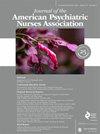"这是我的秘密羞耻感是阿片类药物使用障碍患者接受治疗的障碍
IF 1.5
4区 医学
Q3 NURSING
Journal of the American Psychiatric Nurses Association
Pub Date : 2024-04-06
DOI:10.1177/10783903241242748
引用次数: 0
摘要
背景:药物使用障碍(SUD)是一种慢性疾病,去年影响了 5900 多万美国人。阿片类药物使用障碍(OUD)是药物使用障碍的一个分支。文献资料表明,医疗服务提供者经常羞辱 OUD 患者。OUD 患者经常会因自己的失调而感到羞耻。方法:本研究采用定性探索设计,通过与接受 OUD 治疗的患者进行焦点小组讨论来确定羞耻感问题及其与寻求健康行为之间的关系。结果:通过对四个焦点小组中 11 名参与者的讨论进行系统的内容分析,发现了四个主要的主题和相关的次主题:回避预防性护理(认为提供者是评判性的);隐藏的失调(保守秘密);羞耻感的制约(为继续使用毒品辩护);以及对 MOUD(阿片类药物使用失调)提供者的信任。羞耻感导致患者不愿采取促进健康的行动,如预约初级保健提供者和牙医。这包括建立信任和融洽关系、提供教育、与精神心理健康专家和其他医疗服务提供者合作,以及提供支持和资源以帮助患者控制病情,从而达到最佳的健康效果。本文章由计算机程序翻译,如有差异,请以英文原文为准。
“It’s My Secret”: Shame as a Barrier to Care in Individuals With Opioid Use Disorder
BACKGROUND:Substance use disorder (SUD) is a chronic illness impacting more than 59 million Americans last year. Opioid use disorder (OUD) is a subset of SUD. The literature supports that healthcare providers frequently stigmatize patients with OUD. Individuals with OUD often feel shame associated with their disorder. Shame has been associated with maladaptive and avoidant behaviors.AIM:The aim of this qualitative descriptive study was to examine and describe the experiences of shame and health-seeking behaviors in individuals with OUD.METHODS:A qualitative exploratory design using focus groups with individuals in treatment for OUD was used to identify the issue of shame and its relationship to health-seeking behaviors.RESULTS:A systematic content analysis of discussions with 11 participants in four focus groups revealed four major themes and associated subthemes: Avoidance of Preventive Care (belief providers are judgmental); the Hidden Disorder (keeping secrets); Constraints of Shame (justification for the continuation of drug usage); and Trust in MOUD (Medication for Opioid Use Disorder) Providers. The feeling of shame leads to a reluctance to engage in health-promoting actions, such as scheduling appointments with primary care providers and dentists.CONCLUSION:Healthcare practitioners must prioritize providing a safe, nonstigmatizing environment for patients with SUD/OUD. This includes establishing trust and rapport, providing education, collaboration with psychiatric mental health specialists and other healthcare providers, and the offering support and resources to help patients manage their condition to achieve optimal health outcomes.
求助全文
通过发布文献求助,成功后即可免费获取论文全文。
去求助
来源期刊

Journal of the American Psychiatric Nurses Association
NURSING-PSYCHIATRY
CiteScore
5.30
自引率
0.00%
发文量
65
期刊介绍:
The Journal of the American Psychiatric Nurses Association (JAPNA) is a peer-reviewed bi-monthly journal publishing up-to-date information to promote psychiatric nursing, improve mental health care for culturally diverse individuals, families, groups, and communities, as well as shape health care policy for the delivery of mental health services. JAPNA publishes both clinical and research articles relevant to psychiatric nursing. This journal is a member of the Committee on Publication Ethics (COPE).
 求助内容:
求助内容: 应助结果提醒方式:
应助结果提醒方式:


